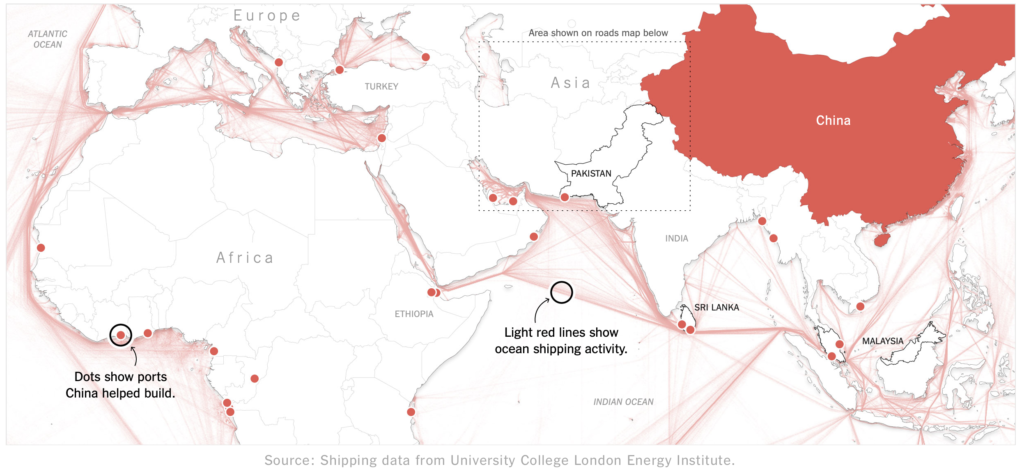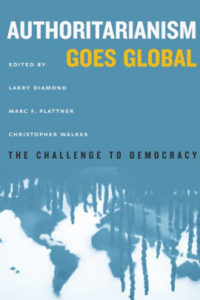
China has been accused of engaging in predatory lending aimed at trapping countries in debt, acquiring strategic assets like ports, and spreading corruption and authoritarian values, not least in sub-Saharan Africa, The New York Times reports.
It is undeniable that China is accumulating substantial – at times decisive – financial and political leverage across the geopolitical map [not least through its Belt and Road Initiative – above], acquiring new stakes in key ports, new political allies, new resupply points for the Chinese navy, and new destinations to export elements of its authoritarian model and censorship regime, analyst Anu Anwar writes for the Asia Times.
 China, Russia, Saudi Arabia and Iran are among the autocratic regimes capable of exerting influence beyond their national borders, and they are doing so in many democratic settings, the National Endowment for Democracy’s Christopher Walker observes. Nor is it a single sector or institution that is vulnerable. Media, universities and academic publishers, as well as the technology sector and electoral systems, are among those at risk in this era of hyper-globalization.
China, Russia, Saudi Arabia and Iran are among the autocratic regimes capable of exerting influence beyond their national borders, and they are doing so in many democratic settings, the National Endowment for Democracy’s Christopher Walker observes. Nor is it a single sector or institution that is vulnerable. Media, universities and academic publishers, as well as the technology sector and electoral systems, are among those at risk in this era of hyper-globalization.
Democracies have been slow to come to grips with the fact that interaction with autocracies in such contexts is not necessarily neutral or benign. Russia’s corrosive manipulation of the information environment and the election processes in any number of instances, including in the United States, is indicative of the problem, he writes for Policy Options:
 The most determined autocratic powers use a variety of activities to manipulate democratic institutions. Canadian society is already contending with this multifaceted challenge….. The Canadian experience is part of a global pattern in which the space for external criticism of the Chinese authorities has shrunk. Within China, the authorities brook no dissent. Abroad, Beijing seeks where possible to exclude from public discussion topics on which it prefers to hear only silence, part of an exertion of influence my colleagues and I at the National Endowment for Democracy describe as “sharp power.” RTWT
The most determined autocratic powers use a variety of activities to manipulate democratic institutions. Canadian society is already contending with this multifaceted challenge….. The Canadian experience is part of a global pattern in which the space for external criticism of the Chinese authorities has shrunk. Within China, the authorities brook no dissent. Abroad, Beijing seeks where possible to exclude from public discussion topics on which it prefers to hear only silence, part of an exertion of influence my colleagues and I at the National Endowment for Democracy describe as “sharp power.” RTWT
“Chinese investments in sensitive infrastructure and the outgrowth of Chinese ‘sharp power’ and the ways it is using its economic influence as an extension of its foreign policy to punish, coerce, or incentivize regional states to align with its agenda,” argues Jeff Smith, a research fellow at the Heritage Foundation.







